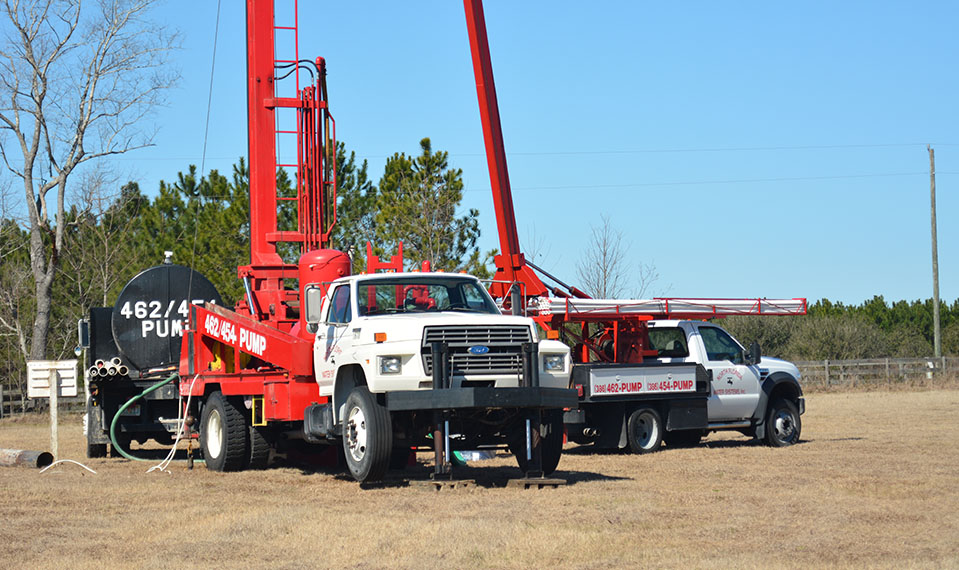Common Issues With Florida Water
No matter the quality of your well water in the past, there’s always the possibility water can start tasting funny or become contaminated. Ideally, your water should have little to no taste or smell. If you detect a strong flavor or odor, it could indicate contamination, in which case the water should be tested to make sure it’s safe for drinking.
In Florida, there’s a plentiful supply of groundwater — more than 90 percent of the state’s water for drinking, bathing, laundry, agriculture, and other purposes comes from groundwater wells. As groundwater seeps into the Earth, it’s automatically filtered by sediment layers. However, simply because groundwater is purified naturally doesn’t mean it’s not also vulnerable to contamination. Consider these four common problems with water in Florida from our water well company, and be sure to schedule routine water testing with North Florida Water Systems Inc, to ensure your drinking water is safe year after year.

Hard Water
Hard water is the most common problem with water in Florida. It has high concentrations of minerals, such as calcium or magnesium, and although hard water is safe to drink, it can result in a range of issues. There are a few common signs of hard water such as mineral buildup around water fixtures, soap scum in the bathtub, and spots on dishes or glassware. The plumbing, plumbing fixtures, and water-based appliances can become corroded or clogged, and hard water causes unnecessary wear on dishwashers, washing machines, and other appliances that use water.
Hard water can’t be identified by smell or taste; what’s worse, most household water supplies — those accessed by well pumps — contain hard water. If you suspect hard water in your household, contact us to help you choose and install a water softener for your home.
Chlorine
Chlorine in small amounts is nothing to be alarmed about — it helps disinfect water and prevent waterborne diseases, so it’s safe to drink. However, a potent bleach scent or chemical smell is a cause for concern. This smell indicates a level of chlorine that is too high and above the safe, Environmental Protection Agency (EPA) maximum, and is a sign of well pump malfunction. The EPA requires that chlorine levels in public water systems stay within a detectable range but not above 4mg/L. While Florida residents have no control over the amount of chlorine in their water, there are a couple of simple fixes to eliminate the chemical odor. Cover a pitcher of water and place it in the refrigerator — the scent will dissipate naturally due to the cooler temperatures. You can also boil the water first for five minutes, allow it to cool, and place it in the fridge. Contact North Florida Water Systems Inc right away if you suspect a high concentration of chlorine in your drinking water.
Aquifer Contaminants
Unlike hard water, there are various contaminants specific to Florida’s aquifer that are identifiable by taste or smell. Aquifers are giant, underground rocks made of porous limestone that contain a large amount of fresh water. Combined with rapid population growth, water from an aquifer can be contaminated easily due to an aquifer’s thin soil layer and high water table, along with the large amounts of rainfall common in Florida.
The three most common aquifer contaminants in drinking water are dry-cleaning solvents, gasoline leaking from storage tanks, and various pesticides. Because of these possible contaminants, it’s crucial to schedule frequent well water inspections and get water treatment if needed. Contact our water treatment company in Florida to learn more about water treatment options.
Bacteria
Organic contamination from bacteria in the water is a severe health concern. Bacteria usually originates from septic tanks and livestock, and contaminates groundwater through corroded or poorly installed wells. Health risks from bacterial contamination include illness, infection, and “flesh-eating bacteria” that can restrict blood circulation and cause tissue damage. A sulfur or rotten egg smell can indicate the presence of sulfur bacteria, too. Sulfur bacteria is highly corrosive, so it frequently leads to leaky pipes. Proper water well installation by our team is one of the best ways to combat water contamination from bacteria.